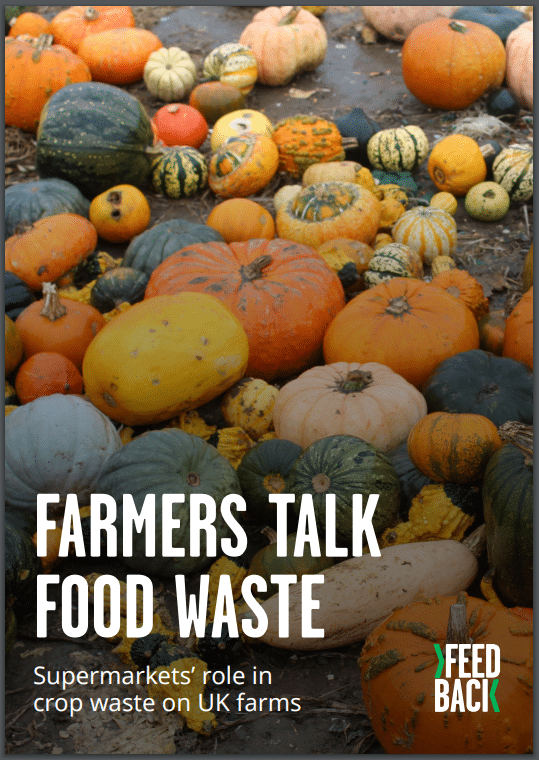
New report – how supermarkets drive food waste on UK farms
Farmers surveyed for this report wasted on average 10–16% on typical years, equal to around 22,000–37,000 tonnes
Our new report reveals how supermarkets drive food overproduction and waste on UK farms. Our investigations into international supply chains and our work with UK farmers through our Gleaning Network, which involves going to farms to harvest surplus produce, has shown us first-hand the scale of food waste, largely unseen to the public. To address this, we have released a new report that highlights farm level food waste and the systemic role that supermarkets play in this issue. The report draws on our investigations into global food supply chains, a survey of UK farmers in 2015 and case studies.
Scale of farm level food waste
Estimating the level of farm waste is challenging. Farmers surveyed for this report wasted on average 10–16% on typical years, equal to around 22,000–37,000 tonnes: enough food to provide 150,000 to 250,000 people with five portions of fruit and vegetables a day for a whole year. WRAP’s most recent research suggests that a conservative estimate of farm level food waste is 2.5 million tonnes, with the associated cost being £0.8 billion. There is a distinct lack of research on farm-level food waste, particularly when compared to household food waste – this needs to be addressed.
How supermarket culture drives waste
Farm level food waste is a symptom of overproduction, UK supermarkets transfer the commercial risk of overproduction onto farmers, and create a food production model that prioritises consistent, high availability of cosmetically perfect produce over minimal waste. This has led to a food system which is synonymous with waste.
Our research shows that the following supermarkets practices drive waste;
- Cosmetic specifications – supermarkets dictate strict cosmetic specifications to farmers meaning they will buy fresh produce that fits exacting size, shape and colour specifications –regardless of the nutrition, taste and value of the food.
- Failure to market seasonal produce – certain weather conditions can lead to gluts. A cauliflower glut occurred in the UK in 2017 which resulted in large amounts of cauliflowers going to waste.
- Cancelled or altered orders – a significant driver of waste is the difference between buyers’ forecasts and confirmed orders, including last-minute order cancellations.
- Concentration of power among supermarkets – the UK food retail market is one of the most concentrated in Europe. Nearly half of the surveyed farmers reported that industry concentration in retail has led to less outlets for surplus produce, like traditional grocers and markets.
Our experience with farmers consistently shows that supermarket practices drive waste. Supermarkets need to be held responsible for the full extent of the waste they cause in food supply chains – not just the waste that comes from their stores. We need to address the ways high concentration of power in the hands of retailers has created an unfair food system, that depletes rather than nourishes the planet.
Read the full report here.
What can you do next?
Feedback never accepts donations from corporate organisations. To achieve our goal of a food system that nourishes us and the planet, we need your help.
DONATE WHAT YOU CAN NOWDo you believe everyone should have access to nutritious, delicious food - without trashing our planet in the process? Sign up to our mailing list to get the latest on our campaigns.
JOIN THE MAILING LISTFollow us on Facebook for updates on our campaigns and opportunities to get involved.
Get social